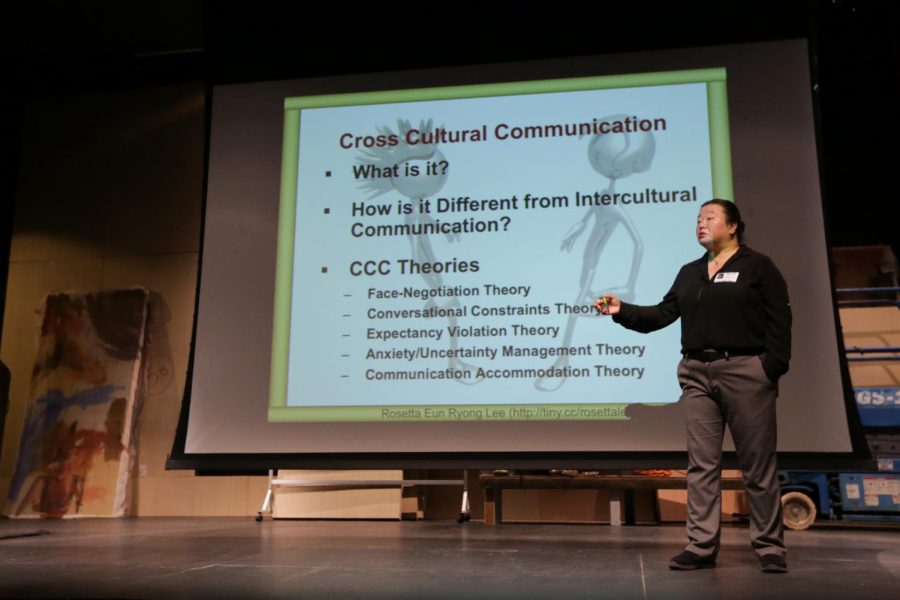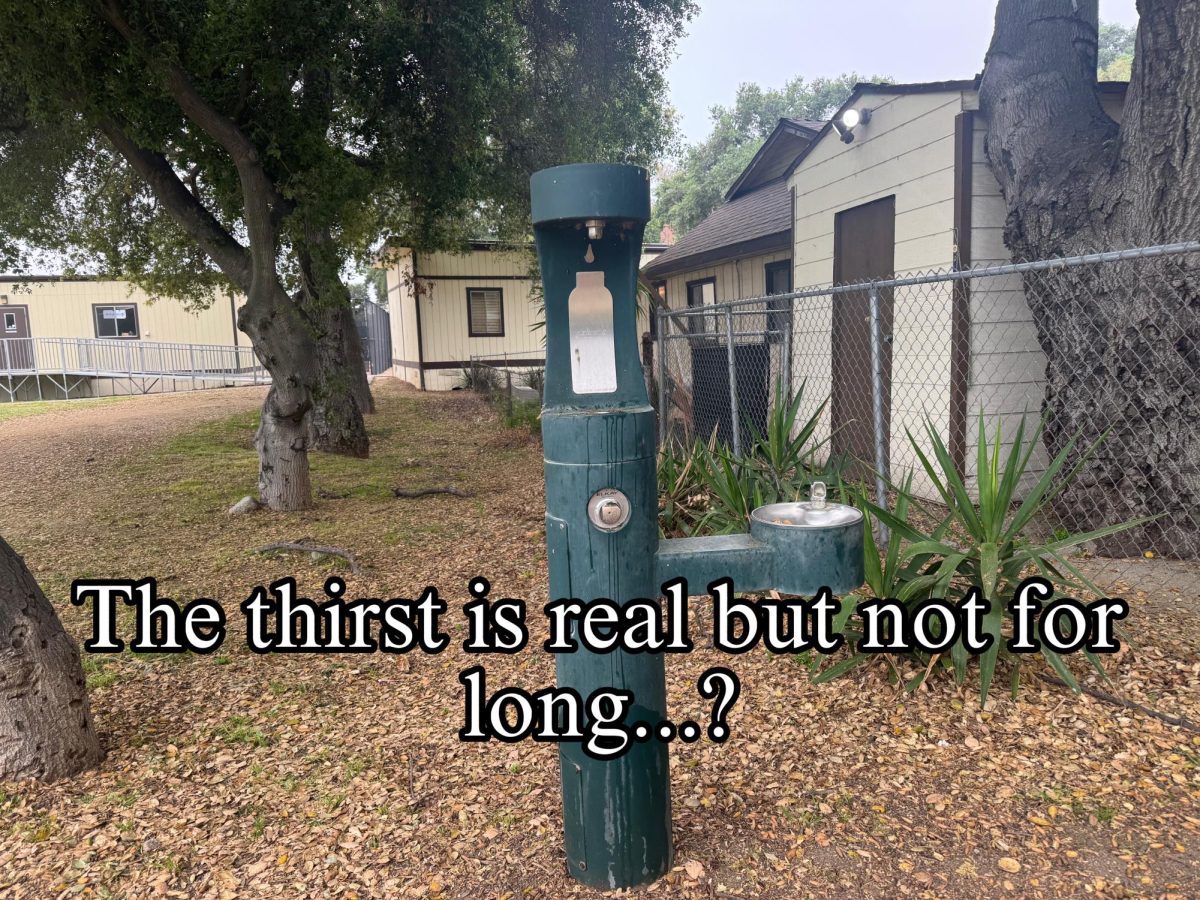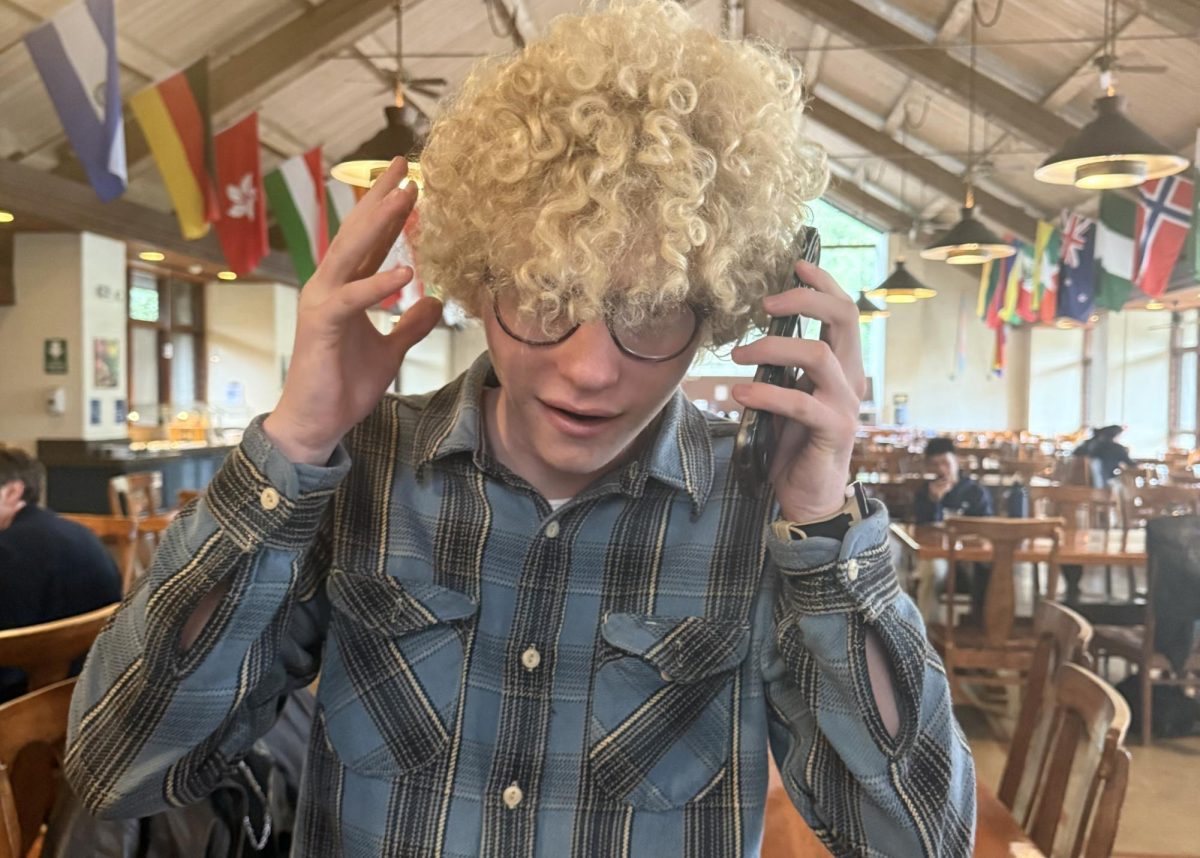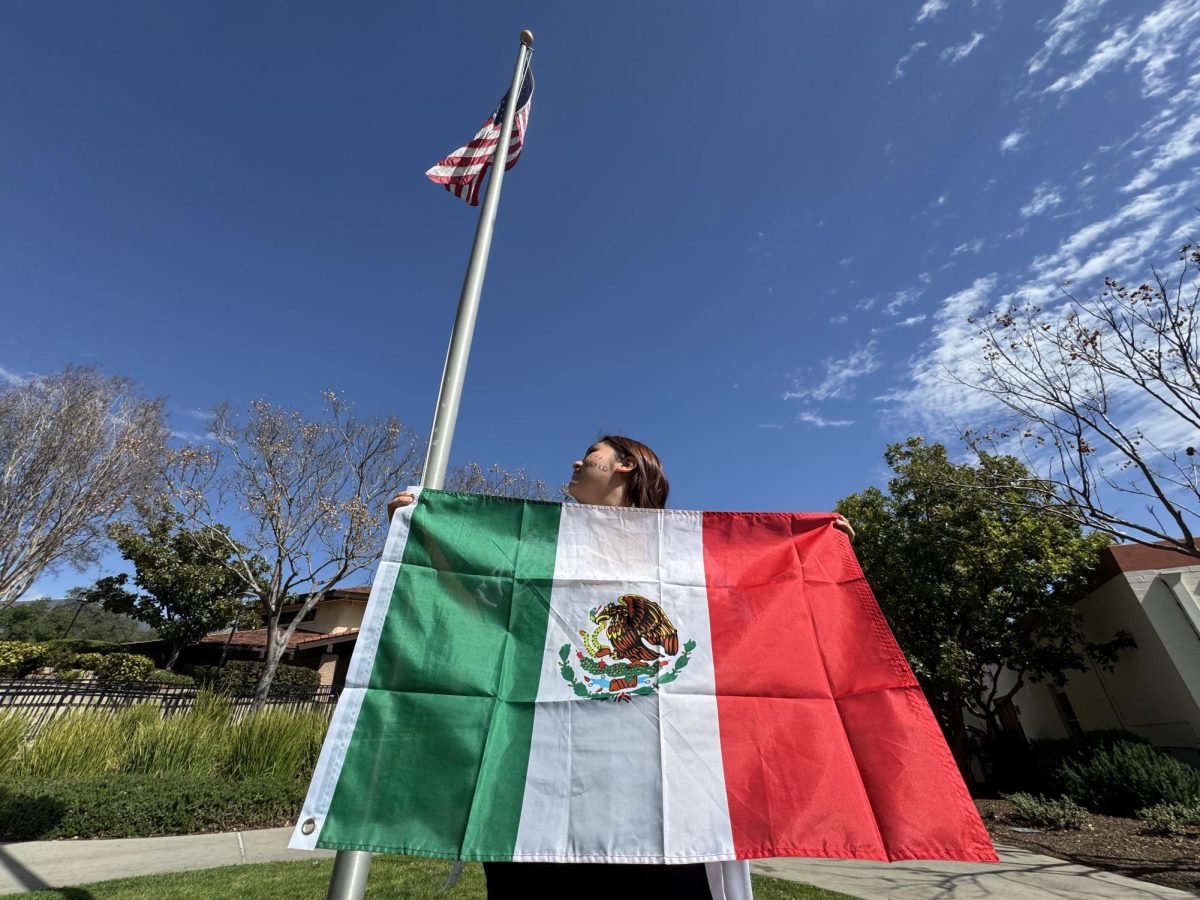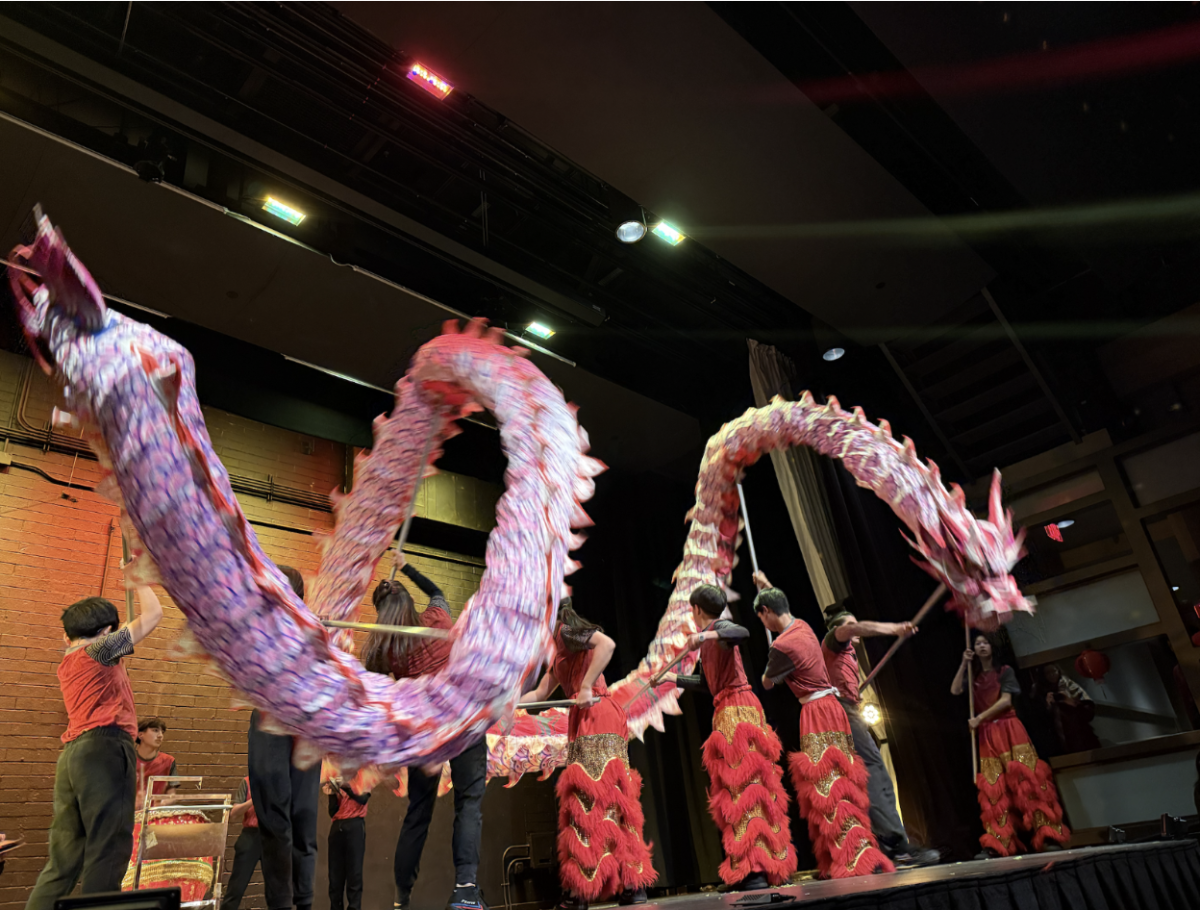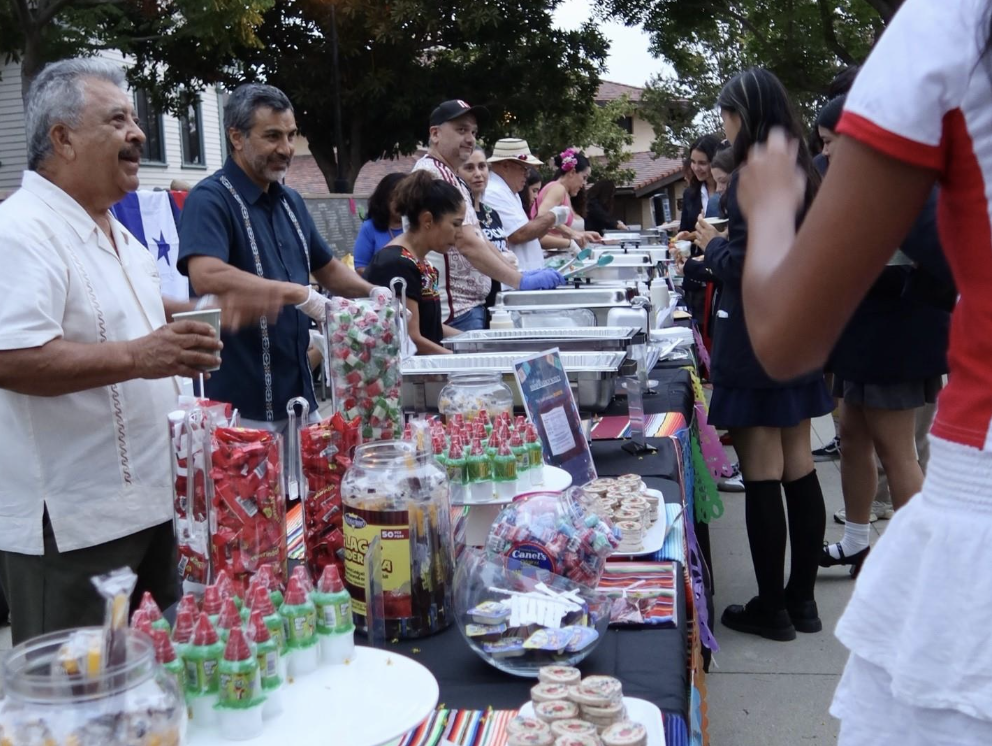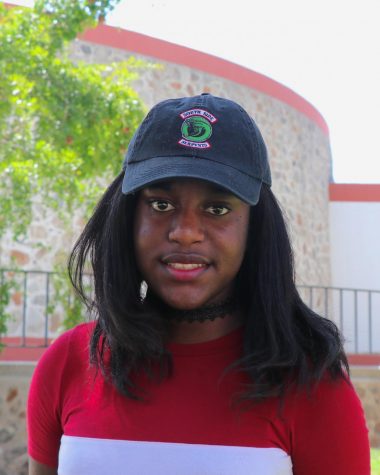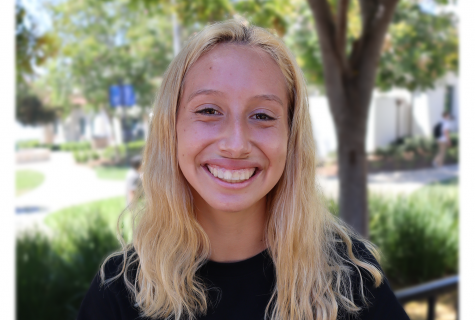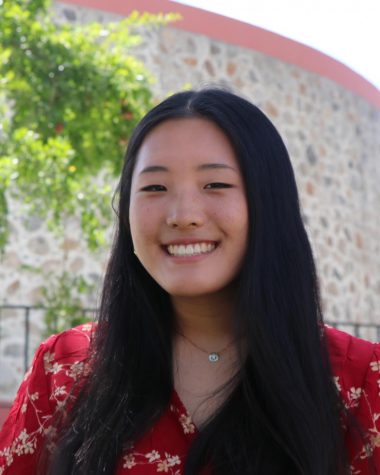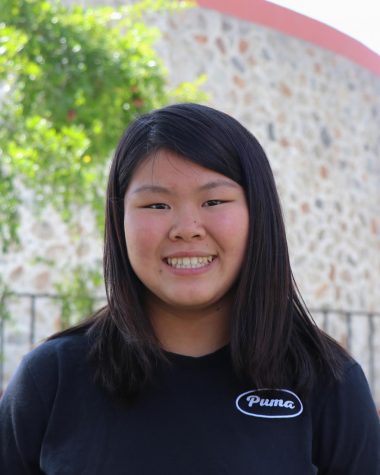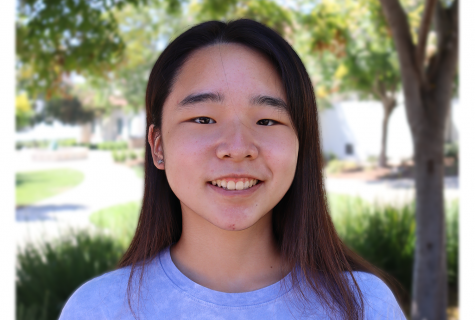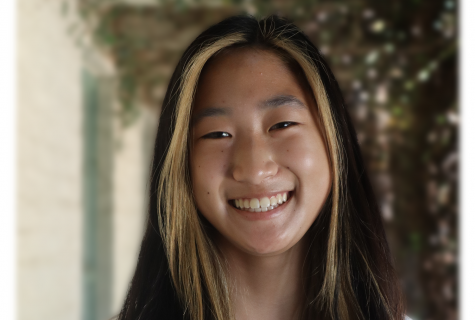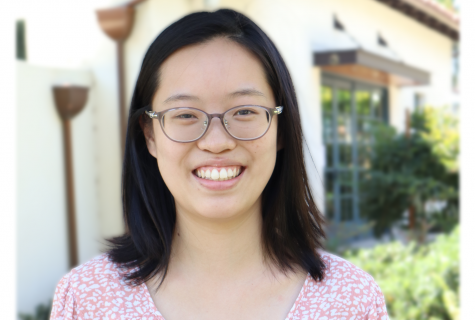As they entered Les Perry Gym, students and faculty gathered in small groups to listen to Rosetta Lee, educator and professional outreach counselor at Seattle Girls’ School, while watching her presentation titled “From Safe to Brave: Courageous Conversations.” Randomly assigned groups of WSC and VWS students in different grades and 1-2 faculty members engaged in a conversation highlighting Lee’s main points such as guilt v.s. shame, cultural conflicts, being A DEAR (affirm, describe, explain, assume, request), and learning from mistakes from conversations and interactions in our daily lives.
Lee urged students and faculty to celebrate the benefits of Webb’s diverse community and helped many focus on their aspirations for the future. As demonstrated in her slide show, Lee wants to ensure that the Webb community is inclusive and welcoming in order to prepare students to lead in an increasingly global world.
In her talk, Lee proposed the best way for one to feel safe but still have authentic conversations in an uncomfortable environment.
“I felt the concept of having a safe but uncomfortable space was pretty interesting,” said Jayden Chiu (‘20). “How obviously it’s important to have a physically safe space where different opinions are accepted and where we are open to diverse opinions. However, it’s also important for us to be uncomfortable because it is important for us to step out of our comfort zones and we learn by being uncomfortable.”
The Webb community encompasses three kinds of relationships: the relationship between faculty members and staff, between adults and students, and between the students themselves. One must also be aware that inside and outside the classroom exist as two different environments. In these spaces, the techniques of brave and authentic conversations vary, and people should be mindful of its flexibility.
Lee placed a large emphasis on the concept of Guilt v.s. Shame. She talked about how guilt can be a motivator for people to change their wrong behaviors. Shame, on the other hand, affects a person negatively.
When a person is called out for their actions, Lee states that they can enter a “shame spiral.” The shame spiral can make someone personally attack the person who called them out or react aggressively to the comments on their behavior.
Lee recommends that when you feel shame for some of your actions, you should take some time to breathe and learn from your wrongdoings. Lee also recommends that when confronting someone in a professional environment, you should write to the person first. This choice will allow that person to calm down if they are affected by a shame spiral, and in case they react aggressively towards you, you have proof of how you attempted to civilly handle the situation.
Lee introduced a way to resolve any sticky situation. In her talk, she taught the “A DEAR” method which forces individuals to be empathetic and solve any person-to-person problem.
The person involved must first affirm the person or the relationship if damage has been done. By doing this, it creates an open space where the person at fault will feel comfortable when you address their behavior. When you talk about the mistake, she suggests instead of judging, we openly describe how it impacted us specifically and what should be done to move forward. This method could be applied through a spoken conversation or through a letter in order to make sure that shame does not get in the way of coming up with a resolution.
Towards the end of Lee’s presentation, she brought up the importance of learning from our mistakes. To better understand the skills taught today, students have to step out of their comfort zones and apply them in real life. To illustrate this point, Lee brought up the concept of learning zones, which are spaces between the panic zones and comfort zones.
Take the Webb community for example. It is important for us to try and push ourselves to engage in more learning zones through having meaningful conversations and one-to-one dialogues with both people that disagree with as well as affirm you. Lee also mentions the concept of the backward bike, which is a process to better understand something through unlearning previously-conceived ideas. Since many people grow up being instilled with stereotypes and false statements, making the intentional attempt to unlearn is especially important.
“Rosetta Lee was humourous and her speech offered me new aspects, but we could have discussed more within our groups,” said Brandy Zhang (‘22).
Moving forward, Lee advises people of the Webb community to take on more discussions with people who affirm them, but not shy away from having dialogues with people who do not.
After all, the most important thing one can do is to challenge themselves by having courage that can help one obtain new knowledge. Lee’s visit has inspired a new way of engaging with social consciousness in the Webb community, and her practices will be seen on campus for a long time.


